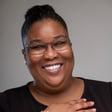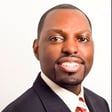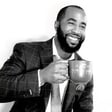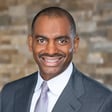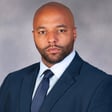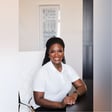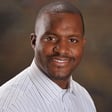Introduction and Listener Engagement
00:00:00
Speaker
Welcome back for part two of Take Your Homeboy to Work Day podcast. We'll pick up where we left off. But before you go, we need your help to spread our message. So please subscribe, like, and rate five stars wherever you get your podcast and on LinkedIn at Take Your Homeboy to Work Day podcast. Thank you, enjoy. All
Expectations and Metrics for Doctors
00:00:23
Speaker
right, so now you are starting off at your first practice.
00:00:28
Speaker
I want to put on like a business lens with this question. I want to like put on, you know, your business sunglasses for the healthcare. So you have your, you're working at your first practice. And this is separate from the patient. So I know you'll ultimately get in the patient healthy is best. But as it relates to
Patient Agreements and Comparison to Other Professions
00:00:55
Speaker
your employer, Novot Health, what is the return that they are expecting from you as a doctor to the health system or to them as an employer? Did that question come across clear? So let me see if I can rephrase this as far as you're saying
00:01:16
Speaker
So when you are hired for a position, let's say in business, you have an expectation as far as like media quota, if you're in sales, what have you, you're asking, what is the expectation from that standpoint? Yes, exactly. Thank you for that. Thank you for that analogy. Yes. No word, no word. So yeah. So, so when you're in outpatient medicine, so, or primary care, you are basically saying that I'm going to agree to see X amount of patients.
00:01:44
Speaker
per day or per session, morning or afternoon session or per week or per month or across the year. And so it's not a set number, but that is kind of how you would extrapolate that number out to determine what you're anticipated or what you want your salary to be based on what you can do as far as performance.
00:02:08
Speaker
As a primary care provider, it's expected of me to take care of a certain size patient panel. That might be 2,000, 3,000, 3,500 patients. And then that might translate to, if you go all the way down to the microscope, as far as looking at the day, that might be saying anywhere from 20 to 25 patients a day.
00:02:35
Speaker
And so based on how well you're able to produce, produce meaning seeing patients, then that is going to translate into your compensation. And so what individuals, just like anyone would want is if I'm, if I own a barbershop and I have five seats for my barbers, for barbers to cut hair in.
00:02:57
Speaker
I want those five seats to not only pay for my lease here and all my operating expenses, but then obviously I want to have take-home. So I'm actually gaining money. So same thing. If I have an office building as a huge healthcare system and I have five areas where doctors can be practicing individually, I want those five providers to bring in as much revenue to cover the lease and the operating expenses on top of
00:03:28
Speaker
potentially having a profit. And so we look at it the same way. And so that's kind of how it's looked upon as far as what's expected of me. My expectation is that, hey, I'll see enough patients to cover my expenses and what it costs for me to be here.
Patient Acquisition Strategies
00:03:42
Speaker
Gotcha. And how do you find your patients? I'm sorry. Repeat that. Oh, how do you find your patients?
00:03:50
Speaker
Oh, yes. So not necessarily that I have a fine. So the beautiful thing is that I'm in Charlotte, North Carolina. So Charlotte is, I mean, one of the fastest growing cities that we've seen across the country in the past five, seven, 10 years. And so patience, that's not a difficult thing. But there is some advertisement that goes into it. Definitely, when you're good, I mean, you're going to have patients that kind of just tell all of their friends at work or the people that they work with, their family members that live in the area.
00:04:18
Speaker
And so it's going to be word of mouth where, you know, every other day, you know, I've had, you know, individuals saying, hey, yes, you actually see my, or actually my coworker that I work with down at so-and-so company actually told me to come back, come down and see you. Or we have a website where individuals can look you up and find you if they're looking for a primary care provider in the South Charlotte market. So they can actually fine tune their search.
00:04:44
Speaker
And they can go through different bios from individuals that are within the system. And they can choose that way as well. So that's a very common way for people to find their primary care doctors as well. Not just in my market, but in any market. Gotcha. Gotcha. Appreciate that. That was just another question on my mind.
Doctor's Financial Journey and Career Stages
00:05:03
Speaker
know, one thing I love all of my guests to hear is the financial side of the career path. And so, uh, you know, if you could, you know, we've talked about, you know, three stages of your career. Let's say that first stage was the, uh, working in Hartford, the summer you spent in Hartford. Second stage was being through med school and doing residency. And then the third stage would be, you know, you actually practicing, you know, could you share what were the salaries that you married?
00:05:31
Speaker
during each of those stages of becoming a doctor, then we get what were each of those salaries? Yeah, so the first thing that I was doing at Hartford, that was that was more of an internship. So it wasn't really a salary applied to that. We just got a stipend for that. But when I first came out of college, I actually didn't go straight into medical school. So I actually worked for about three years before going into medical school. And so during that time, I was actually working as a
00:05:58
Speaker
I can't remember that title. Man, it was a tough job, man. It gave me character. Right, right. Pretty much pretty. We talked about this as well. So it was like handling like specimen in a lab. I'm talking about like urine specimen. It was like in a hospital. So it was nothing for like the bag to come up with like half the urine would be out the container. I'm like, come on, daddy.
00:06:25
Speaker
So anyway, so it was, it was a tough one, man. But that was, that was working as a medical clinical lab assistant or something like that. I was like, I was like the assistant to the assistant, man. And so, so I think, I think there I might've been, that was my first job out. That might've been like 25,000. I think it was like, I was still at home, bro. So it was, it was, yeah, it was, it was. Yeah, man. Built character.
00:06:54
Speaker
So then from there though, like I use that to kind of get into the system, into the healthcare system in the area that I was living in. And then I actually transitioned to a more, I guess, a position I can really gain from that would apply to my application for medical school. And so I was doing clinical research. So I was a clinical research analyst and I was working in melanoma,
00:07:21
Speaker
which is a type of skin cancer. I was working in their studies here in the Charlotte area. And so it was a lot, it was more exposure to patients. So I was, the individual would collect different data from the individual when they were coming in for their updates while they were going through a clinical trial to treat their, either their resistant or their rare form of melanoma. Got to work under a really, really dope oncology team.
00:07:49
Speaker
And then it was Bloomington Cancer Institute. I mean, they knew of my aspirations. And so they were really into teaching and kind of taking an extra step to kind of say, hey, these are things that you would think about as a medical student. And so these are things that we're looking at from a medical standpoint, not just having to push the papers, which is really what I was being paid to do. But at
Residency Salaries and Specialty Pay
00:08:13
Speaker
that level, I think that salary was around something like 40, 45 range.
00:08:18
Speaker
And so that was, man, I thought I was balling, bro. I was, I mean, I'm going to go with, yeah, 22, 23. Oh, man. So I was living, I was living. And so I did that for a little while. And then that's when I went back into medical school. And so when you're in med school, obviously you're not making any money. And so you're pretty much just working and accruing a huge bill for medical education, but it's,
00:08:48
Speaker
So you're doing that. And then you go into residency. Now, residency, you do make a salary. You are being paid like a training physician, so it's not like what we call an attending, who is the person who has finished all of their training, they're board certified. But so when you're in residency, you're really paid by what year you are in residency. And so what I mean by that is your first year resident,
00:09:13
Speaker
in a certain area of the country are gonna be paid about the same salary. So that first year that might be, depending on where you live, if you're living in an area where there's a high cost of living in New York, that might easily be 50, 55,000. If you're living somewhere where there's a little bit lower cost of living, then it might be 40, 42, $44,000 a year. But each year, what's called your post-graduate year, your PGY year, or your PGY one is your post-graduate year one.
00:09:42
Speaker
PGY2 is a second year resident and so forth. So as you increase the year residency, your salary will increase a little bit. And so that's within your program. And so that's just built in. So you might go from 42 to 43 and a half as far as 43,500. And you might go to 46,000 for your third year and so forth.
00:10:06
Speaker
And then you finish, so every residency, what I didn't touch upon before was each residency program or specialty has a set number of years built into that residency program. So you obviously can't train to be a neurosurgeon at the same time you can train to be an internal medicine physician. And so internal medicine or family medicine requires a three-year residency program where neurosurgery, you can easily get into, you know, eight, nine years of training before you become board certified.
00:10:35
Speaker
or eligible to become board certified. And so if you're on a PGY nine year, you're gonna be making more than you were your previous eight years. And so if that makes sense. So it gradually builds up, but it usually starts somewhere around the 42 to $55,000 range. And then it goes up by the number of years you're in residency. After you finish your residency program, then it's really your salary is broken down by really what specialty you're going into. And then you just,
00:11:04
Speaker
just like you would for any other job, you apply for a job, the job gives you a salary range, you tell them what you think you're worth x, y, z, and then you negotiate. And so that's really going to be based upon your specialty. So whereas, you know, if you're super, super subspecialized, if you're a neuro neurosurgeon, or let's say a neuro oncology surgeon, then you're going to be super specialized, you're probably gonna be making
00:11:33
Speaker
you know, X amount of dollars, you know, up until 600, 750, $800,000 a year versus if you're a psychiatrist and you're going to be making, you could be making anywhere from, I don't even know what the latest numbers are. I haven't looked at these years, but anywhere from, you know, 250 to 300 versus a pediatrician, you can be making $200,000 a year or what have you. So yeah.
00:11:59
Speaker
Appreciate that breakdown man. Thank you for being I know Some people may be a little taboo or nervous, but I appreciate you for the better minute. Oh
Lifestyle Considerations in Medical Careers
00:12:07
Speaker
Yeah, exactly. Exactly. But that's the thing especially as you have young people looking at different careers I think that when we were coming through there wasn't as much of an emphasis as far as hey looking at what type of lifestyle do you want to lead?
00:12:22
Speaker
You know, um, and that doesn't just mean money. We're talking about how much you want to be someone that wants to be, Hey, I want to be out of the office by three o'clock with my family, you know, and spending maximum time, no weekends in the office. Or are you someone to say, Hey, no, I'm fine with working, you know, 90 hours a week, 80 hours a week. Um, and you know, I can fit family where I want it to be, or, Hey, I want to have the certain salary that allows me to say, Hey, every quarter I can just, you know, blow off 12, $15,000.
00:12:51
Speaker
to go on a serious trip, you know, because that's why I work so hard is for that time. And so we really should be talking to young people about, you know, what type of lifestyle you want to lead because that can push you towards or away from certain careers or certain career paths, at least. Again, I think that this is a great idea for both young, old and all in between. So kudos. Kudos on the idea. Yeah. Well, while we're on the topic, how many hours a week do you put in?
00:13:20
Speaker
Yeah, I minimize. I do 36 hours a week in the office. I'm one of those people that I cram a lot into a short period of time. But yeah, most primary care docs are going to find us working pretty much four and a half day weeks just for peace of mind and sanity. Some people can do 40 hours a week, but I tend to be happy right at the 36 hour mark.
00:13:48
Speaker
Good, good, good. Let me ask you this. I know there's a lot of paperwork that comes with it also. So as you think about your week, what percentage do you spend with patients and then what percentage are you doing paperwork? Man, that's a good question because I always tell people, if I could just see patients,
00:14:09
Speaker
and not have to deal with any of the paperwork and the red tape and the jumping through hoops with insurance companies and this and that. Oh, I'd be in heaven. Oh, it'd be perfect. But it's a lie. And oftentimes, you just have to remind yourself that, hey, I'm doing this for the patient. I'm doing this for the patient. But to answer your question, I mean, I could easily ask my wife. She'll probably say it's a lot longer. But I can easily say, I'll tack on an hour.
00:14:38
Speaker
Probably about 30 minutes to an hour a day of some form of paperwork, whether it be documenting, whether it be, you know, family medical leave paperwork or, you know, working through prior author or probably about an extra 30 minutes to an hour a day. Okay. Okay. Yeah. That can add up too. Okay. Okay.
Holistic and Inclusive Patient Care Approach
00:15:00
Speaker
Oh, it adds up like, yeah. Yeah. Yeah.
00:15:03
Speaker
Well, let me ask you this, then. I mean, you've been working with patients. That's why you do it. What's been your proudest achievement so far? Proudest achievement? I'm assuming within the workspace. Yeah, uh-huh. I would say, you know. I mean, actually, you know what I mean? There's been a lot. I think that there's been quite a few. I think from a practicing standpoint,
00:15:35
Speaker
I've had a gang of folks that really come to me without really understanding what their primary care doctor is for just because they've had different experiences. And so I've had individuals that would, you know, first establish with me and kind of be taken back as far as my approach where, you know, no, I'm including you and asking you, so what are your health goals?
00:15:58
Speaker
What does being healthy mean to you? And so I include my patients in their planning as far as what their treatment plan is going to look like. And so I've had individuals after their third, fourth, fifth visit we come back and say, you know what? I've never had a doctor that showed me how to do things for myself in regards to changing my eating habit. You know, it's always been, hey, come take this medication and then let me know how things are going.
00:16:26
Speaker
It's never been a, Hey, well, let's actually focus on one change for the next three months. Let's focus on not having ice cream on a nightly basis. Let's go from five nights a week to one night a week. And that's going to be the only change we're going to focus on for the next three months. Yeah. And so when you, when you have that type of a tangible thing to watch out for, not tangible, but I guess something that you can keep yourself accountable for.
00:16:55
Speaker
And you're working with your doctor, not just on medication, but on changing your life. People tell me that that's very different than their previous experiences. And so when I hear that, that kind of reinforces why I do what I do. That erases all of the stressful moments that really kind of come because it sometimes can be a very thankless job. And so that can weigh on you.
00:17:19
Speaker
But it's those situations that really kind of say, ah, you know what, Sean? Yeah, you're where you need to be. Stop. Don't trip about everything else that you're where you need to be because of that. And so I think that those have been the most gratifying situations. Outside of that, I've enjoyed seeing individuals that I've helped along the way. I'm the same way that so many people help me along the way to get to where I want to be.
00:17:47
Speaker
Um, I can remember a young brother that I met over at Johnson C Smith when he was sophomore, maybe a sophomore year over there. Um, and, and over the years I was a resident at the time, but I said, Hey, I knew he wanted to become a physician. He seemed really motivated, definitely had his head down. Uh, and now to celebrate that he's actually in his sec or a third year residency.
00:18:13
Speaker
doing physical medicine and rehab. And so, you know, those are the things that, you know, talking with him and like, yeah, man, I remember back when I met you back in the day and I was like, how is that young dude that talks like me, looks like me? He's where I want to be. Let me, let me talk to him. And so, you know, when we talk about that and then taking a step further, he's telling me about another young brother, another young sister that he's like, man, I met them when I was an X, Y, and Z. And
00:18:40
Speaker
Just like how you helped me out Sean, you know, I'm making sure that they have what they need. But that's, that's, that's the biggest piece, man. And that's what kind of gives me tingles. And that's what, you know, that, that's what, again, solidifies what you do, not just in the office, but, but what you do on the outside, making sure that you're helping someone else be.
00:18:59
Speaker
the best person that they can be, regardless whether it means going into medicine or realizing that, hey, you know what, something healthcare adjacent is actually where I found my love for in physical therapy. And so now I'm studying to be a physical therapist and X1. So I love, I love, love teaching, not just my patients, but then young people that are, that have aspirations or need a little bit of an assistance or a little bit of a nudge the same way that I did.
Symbolic Work Philosophy
00:19:24
Speaker
And, and that's what makes it all worthwhile.
00:19:27
Speaker
Salute, salute, salute, salute. It's heavy, it's heavy, it's heavy. And I love to ask this next question for you now. I want to flip things a little bit and have you think abstract. So as you think about what you do and how you help the community and your patients, if you had to describe it in terms of a picture. So there's a painter here who's going to commemorate what you do.
00:19:54
Speaker
What scene would you describe for them to draw? How would you describe what you do in an abstract picture form? Abstract picture form. Yeah. Like they're creating a stained glass form. That's the cold. That's the cold. I would actually list that. So I don't even know where this image comes from. But what I'm looking at is
00:20:24
Speaker
It's a keyhole, like one of those old school keyholes. Okay. And so you can see, you can see straight through it, but you still know that you're looking through a keyhole. You see an amazing world on the other side. Um, sun is shining, you know, green as far as the eye can see. Um, you know, you can see the leaves blowing or the trees blowing in the wind, but you're on this side of, of, of that keyhole.
00:20:55
Speaker
And so my biggest thing is trying to teach an individual how to open up that door to get to those greener pastures. What does that mean? That might mean for a patient, that might mean teaching you how to eat healthier than what we grew up on, you know, with the greasy fried foods and pork and things of that nature. That might be teaching someone how to start an exercise regimen because you haven't had an exercise since you were in grade school in gym class, or that might be,
00:21:24
Speaker
This is the young person that is dying to become a physician that has never met a doctor or had a doctor in their family, but they know that it's in them, but they might have some early struggles they don't know how to overcome. So opening that keyhole for whatever that means, me being some type of tool to get them to where they want to be. And I think that's the image that I see is I'm just looking through that keyhole and holding onto the dream to figure out how to open a door.
00:21:53
Speaker
Awesome. Awesome. Thank you. Thank you. So now let me ask you this. We've talked a lot about the good of being a doctor and your journey.
00:22:04
Speaker
But I imagine there had to have been some turbulent times, or even maybe a negative, something you didn't anticipate as you were going down this path. You know you wanted to be a doctor, but something you just didn't know you would experience. So like, what's one lesson that you've learned along the way, your journey of becoming a doctor or something you didn't experience that you would tell your younger self?
Mentorship and Career Advice
00:22:32
Speaker
So it was actually said to me by one of my mentors in med school. Dr. Esther Forrester, to this day, she's still my family. We talk nonstop at least every couple of months. But no, during a struggle, during a tough time in med school, her focus wasn't
00:22:55
Speaker
so much as in, you know, you messed up here, X, Y, or you did this wrong. Her thing was, you have to appreciate the journey. You have to really take this, because this is a long, long journey that you're embarking on. This is probably like second or third year of med school. And she reminded me, everyone's going to struggle. Everyone's going to stumble. Don't feel like anything that you're going through right now,
00:23:24
Speaker
is something that number one is going to last forever. But number two is not something you can't come back from. Like it hasn't happened before to someone else. She said everyone along this journey is going to struggle, whether it's that first day of med school or whether it's in their 15th year of practicing because they had to deal with some life altering change. There's going to be a stumble along this journey. That's just the type of journey that we decided to embark on. We didn't take an easy route.
00:23:53
Speaker
And so you said, if you can appreciate that and you can accept that when the stumble comes is not as alarming. And so it's kind of like, all right, well, this is the stumble that we were talking about. All right, cool. Let me regroup. Take a couple of seconds. Let me regroup though. Let me figure out how I'm going to rework this plan. And if I could tell my younger self anything, expect that stumble.
00:24:18
Speaker
It doesn't matter what path you're going on, because it really can apply to anyone's life. Expect that stumble. And we plan for it because that gives us the reserve to say, hey, this isn't a sign that I'm on the wrong path. Just because I stumbled doesn't mean I hit a rock in the path doesn't mean I'm on the wrong path. It just means that, hey, now I got to rework how I'm going to navigate. And so when she said that, I still hold on to that.
00:24:47
Speaker
Appreciate and find comfort knowing that, hey, this is going to be a tough path and you might stumble. And when you do, be ready. What was her name again? Dr. Esther Forster. Salute. Salute like a Forster. Yeah, she still practices in the DC area. Yeah.
00:25:08
Speaker
All right. So now, wait, is that the one with the horse? Yes. OK, OK. That's Dr. Quarter. So she's also heavy, heavy as far as looking out for me over the years. But no, she joined when we had the celebration. We all got together for the med school graduation, Dr. Forster. Gotcha. OK.
00:25:29
Speaker
Um, so now, uh, I got a question for you. I don't want you to lose your board practice and I don't want you to, you know, break any HIPAA laws, but I would love to know, you know, uh, what has been your most shocking experience?
Memorable Residency Experience
00:25:50
Speaker
Most shocking experience? Oh.
00:25:55
Speaker
I mean, the one that just took the, just like caught you as far. Yeah. Okay. Okay. Okay. I'll give you time. Hmm. Oh, okay. Okay. So, all right. This goes back to residency. So, um, I think it was actually on the internal medicine or maybe we went on that family medicine rotation, uh, working inpatient. And, um, and it was just a gentleman that was just always coming in with, with, with belly pain, just constant, that's not belly pain, belly pain.
00:26:24
Speaker
And I was early on in my education. And so my thing was, hey, if I've seen belly pain, I'm going to figure out how I'm going to attack it the same way so I never miss anything. So I go down. And so what happened is, as the first year, you'd go down, see the patient, and then you come back, talk to your attending or your upper level about what you saw, what you think, and what labs or what testing you want to do, X, Y, and Z.
00:26:53
Speaker
So I came back, stellar exam, I had everything, vital signs, I'm talking about letting them know, you know, this is how his exam was, abdominal exam to a T. And I'm telling her, and she's like, so, has he had any imaging? I said, no, he didn't have any imaging, but I'm going to order some, I'm going to get the X1Z, this is what we're going to do.
00:27:16
Speaker
No, I think I told that. No, we don't need any imaging. I already know what's going on with his stomach. Right, right. Okay, okay. What was the computer around or whatever like that? So did you check his his chart? And you see, well, you know, his belly pain, he doesn't have no chronic medical condition. So I didn't really need. So you pulled up his chart. This Joker had, like, 1012 visits to the emergency room for abdominal pain in the past, like, five months.
00:27:44
Speaker
And they were all for swallowing things that he should not be swallowing. He had nuts and bolts in his stomach. He had another one. He had swallowed a screwdriver. That's the thing. I never to this day saw. So she was like, my mind is blown. I'm like, OK. Here, I'm thinking this dude might have appendicitis. Now, this dude probably has a pair of scissors in his stomach, right?
00:28:14
Speaker
So long story short, she was like, yeah, sometimes we think we know what we're doing and what we see. And she's like, but you always got to check somebody's history. She's like, it's not everything. But that history would have told you, he is not having to bend the side. He probably swallowed something else, and he didn't even ask her about it. What he might have swallowed. Man, I can't remember what he had swallowed that time. But I mean, I'm talking like metal, like all kind of stuff. A brush? Yeah, I swallowed a brush, like a hairbrush. Man.
00:28:43
Speaker
What the? That was the wildest thing. That is wild. And he never died. None of this stuff never killed him. Normally, if you swallow a screwdriver, you're going to perforate your intestines, and then you're going to have an issue, and you're going to have a acute abdomen, and you're going to die from infection. Right. Yeah, it never dies. I was like, man. And they would have to surgically go in and remove it. That is a great, my jaw is dropped. Nothing about that makes it. My jaw is dropped.
00:29:12
Speaker
Oh, wild. I thought he had an upset stomach.
00:29:17
Speaker
I wonder if he's still doing that to this day or if he... That's a good question. I wonder if he succumbed to his fetish. And shout out to that doctor giving you like a nice little lesson along the way too. She could have just glad to do it with your own friend, but she guided you right into your own little lesson with that. Okay. Right, right. Man, I had some amazing teachers over the years. Yeah, he's a good teacher.
00:29:45
Speaker
Man, well, so speaking of like learning and education, I guess, what are some of the sources you use to stay updated on your practice?
Continuous Medical Education
00:30:00
Speaker
Yeah, yeah. So continuing medical education is huge. I still, so I'm a member of the American Academy of Family Physicians. So they have a continuing education, I guess, platform as part of that membership.
00:30:15
Speaker
And so you can kind of continue to do different types of not research, but I guess you can study or get the most up-to-date information. So let's say every month they'll have their journal that comes out and their journal will go over common items that are pertain or germane to family medicine. So you can review the most up-to-date evaluation for, let's say, chronic knee pain and geriatrics or
00:30:42
Speaker
management of Alzheimer's, early onset Alzheimer's or early detection diagnosis updates or something like that. And so they always have continuing education. And then you have different avenues where we actually have to take board recertifications. And so that really pushes you to stay abreast on things in the way of most up-to-date information. Every physician is going to use up-to-date in their career.
00:31:08
Speaker
And that's a database of all the most up-to-date information from anything and everything, medical related from medications to diagnoses to, I mean, some diagnostics, excuse me, to up-to-date treatment options, primary, secondary, tertiary treatment options. I mean, up-to-date is pretty much our quote-unquote,
00:31:33
Speaker
Bible or our ultimate resource that we would use. And that's something that we can kind of go to on the fly when we're practicing day to day. And then other people just use other things, Medscape, all these different kind of medical education platforms that are available in different apps and different software. How much time do you think you dedicate that a month to like continuous learning and staying updated?
00:31:59
Speaker
I tend to do it on a continuous basis. I try to do the articles on AFP when they come out in their journal. I try to do a little five minute crash course. You might do that while brushing your teeth once a week or two times a month or something like that. I try to do little standardized questions. You might do one section a month or something like that.
00:32:20
Speaker
As we're doing that, you're building your CME points because every so often you have to have so many hundred CME points to continue to be board certified. And so that's kind of how we keep up with that. Gotcha. Gotcha. Cool. Cool. Cool. Cool. All right. So now, um, uh,
00:32:37
Speaker
We did a little pre-call before this. And when I asked this question, you gave a really great answer. I had asked, is there a favorite term or acronym in your industry or field of work that you like to use? For example, if I was in finance, diversification may be a popular term or something like that. But when I asked you this question, you gave me an answer about sounds.
00:33:05
Speaker
that again, you know, I guess what your brain associates sounds with and how that like tied in with what you do your work. Right, right. So yes, so I remember that conversation. So we're talking about phrases and so I said, I really have a favorite. I want it stuck into my head from from from from day one. And that was actually background.
00:33:31
Speaker
So working in the hospital, especially during residency, I mean, you spend countless hours. There's nothing to be in the hospital for 80 hours a week. And so you're always wandering around oftentimes middle of the night checking on patients or, you know, retrieving lab results, checking on radiology reports, X, Y, and Z. So you learn the sounds of the hospital, you know, you know what your, your Bravo codes are going to be. If something's going on with the patient or someone's going, going into cardiac arrest, you know what,
00:34:00
Speaker
an abnormal heart rhythm might sound like on your heart monitor from the nursing station. You know what the sounds are if someone's oxygen level drops and what their monitor sounds like. So we become very sensitive to all these sounds that are going on around us. So the thing that always sticks with me is my pager. Like from residency, I kid you not, and most residents play the same thing, especially if you're no longer aware of pager.
00:34:30
Speaker
That sound is so like, I would tell you like, it's like my heart skips the beat. Cause I remember immediately back to being three 30 in the morning, you know what I'm saying? Getting that page because a woman's going into labor and she's about to drop and you got to race down to this L and D or labor and delivery floor to get this baby. Wow. You were just been sleeping for 36 minutes. So you're kind of like halfway sleep still.
00:34:57
Speaker
It is like, your leg is half numb. Could you jump up really quick? I mean, it was just wild. So that's every time I hear that. And so my wife just recently got into this Grey's Anatomy binge. And so I would be in the kitchen doing something. And I'd hear it in the background. Man, I'd hear that page on the TV. And it would automatically trigger something in me. I was like, this is wild. I was like, years, years later. Yeah, yeah.
00:35:26
Speaker
That's the sound that still sticks with me. When you get a page, how much time do they give you to get down to the hospital? I mean, like if there's an emergency going on, are they giving you 10 to 15 minutes to get there? How does that even work? Oh, so normally if you're getting paged, you're typically already in the hospital. And so they're just telling you, give me a number to call back and then you get an update. But anytime that you're working in the hospital,
00:35:56
Speaker
There's always a huge support staff, like nursing staff that are always available. And they're more than capable of handling just about any and all type of emergency to, I guess, stabilize the situation until a physician gets there. Like you'd be surprised. Nursing, I mean, when I was in residency, I always tell people the nurses in the ICU or the intensive care unit, they were absolutely amazing to the point where I looked at a lot of learning
00:36:27
Speaker
them. Same thing in the emergency room, the nurses down in the emergency room, amazing, amazing, very, very, very sharp people in the hospital and really keep that place going. I'm telling you, they kudos to all the nurses out there because I'm gonna tell you, without them, there is no healthcare system, to be 100% honest with you. And a lot of stuff that needs to get done would not get done.
00:36:55
Speaker
Let me ask you this then, man. So when the pandemic hit, people wanted to celebrate people in health care by banging on the pots and pans at 7 o'clock. Ultimately, we know that that didn't do anything. But if you could choose how you would want people to celebrate health care doctors, nurses,
00:37:20
Speaker
What would you have chosen to be the way that people could honor y'all and celebrate y'all?
Patient Gratitude During Pandemic
00:37:29
Speaker
You know, what actually goes along with me is really just a personal connection. And so when individuals, when patients were coming in to see me, a lot of them actually did take the time and say, you know what, I really do appreciate what you're doing and the sacrifice that you make.
00:37:47
Speaker
to still be here in the office taking care of patients on a day-to-day basis and making sure that we're taken care of and have what we need even in the face of such an urgent matter, which is, excuse me, the pandemic as it continues. So I think that the personal connection and just kind of making that heartfelt moment where it's just two people just communicating. I don't think there's anything that material-wise or benefit-wise
00:38:15
Speaker
I think really taking the moment to let the individual, whether it be your nurse, as you get ready to go into the hospital for outpatient procedure, whether it be your position that you're seeing as an outpatient or as your primary care, or whether it be the individual that's rolling you in the wheelchair back to your procedure. All these people really make healthcare work. And so I don't need a material item. I think it's really just making that connection and taking the time to say, you know what?
00:38:46
Speaker
I appreciate and I recognize what you're doing. I think those words would go so much farther or so much further with an individual in the healthcare system. Then, you know, just showing that gratitude, just showing that gratitude that you respect and appreciate and acknowledge the sacrifice that is being made. You know, because there are places where, you know, you came to hospitals, there are countries where during the pandemic earlier on, where you went to the hospital and there was no one there to take care of you.
00:39:15
Speaker
Like you were just there and you were hoping in the next 24 to 48 hours, your name might creep up to the front of the list where they can actually see you. That was very, very, very real. And so I think just appreciation goes a long way. Respect, respect, respect, yeah. Well, salute to everything you do. I'll be sure to definitely let all of the healthcare providers in my life that I respect everything that they've done. So thank you once again, man.
00:39:46
Speaker
We are coming up towards the end of the show. And now it's time for that unpredictable question that I didn't tell you was coming. But I love asking this question because it gives the guests, my audience, chance to learn a little bit more behind you besides just the professional side. So are you ready, sir?
00:40:17
Speaker
Sure thing. That. So you are now in A&R music station, or not a music station, a record label, and you've been given an unlimited budget to create a song.
Hypothetical Musical Collaboration
00:40:31
Speaker
And you can put any three artists on the song and then one beat producer.
00:40:39
Speaker
And so on this song, they get in the studio together. These four personalities, these three artists, this one producer, they get in the studio together. You know, it's their creative minds. They're going to work together to create a song. Which three artists would you choose? Oh, come on. There's so many. That's a tough one. That's a tough. OK, OK, OK. And this is Dead or Alive or just Alive?
00:41:12
Speaker
All right. All right. All right. Definitely. Definitely. Definitely going with my man J. Cole. Definitely would love to have my man J. Cole on there. I would definitely then go. Ah, that's a tough one. But hey, L. Boogie, Lauren Hill, bro. I would love to have Lauren Hill on that thing.
00:41:55
Speaker
Number three, who's in that number three spot? I'm gonna go.
00:42:06
Speaker
I'm gonna go with my goat. I'm gonna go with my goat, man. Nice here, bro. I'm going with Nas, man. I'm going with Nas. That's a three heavy hitter. That's a three heavy hitters in the studio. Okay. I'm gonna go with Nas. All right. And the beat producer. Now that's where you lose me, bro. That's, oh man, it depends on where I want to end up. I know. I know. Yeah. Right. Right. Right. Right. Right. Right.
00:42:35
Speaker
But with those threes, I mean, they could take, you know, you could do any kind of beat. Those three could. Anything. Exactly. Exactly. You know, I don't know if I would say. Because you did say that a lot. I don't know if I would say. Not straight that I'm going to I'm going to go to I'm going to go to I'm going to go to. Yeah, yeah. OK, that's OK. I'm going to go to I'm going to go to.
00:43:02
Speaker
Yeah, he's one of the best and he could bring out the best at all. I'm trying to think, has he worked with? And that's what he does. He just pulls anyone, really. He can work with just about. Yeah, I go to him. I go to him a little. He knows how to craft a beat to their voices or to how they deliver their. Exactly. Yeah. Yeah. Yeah. Yeah. Exactly.
00:43:25
Speaker
Awesome, awesome. Well, that would be a banger for sure. That's a good question. I'm going to steal that question. I'm going to steal that question. That's a good one. Hey, nope. Yeah, still breathing, man. Respect. I love hearing that answer, but feel free, man.
00:43:41
Speaker
So, man, once again, thank you for coming on the show. Thank you for using your gifts, your creative thinking, your love for society to, you know, make life better for others. It's really selfless, you know, working in the... I'm sure you could go into the private sector if you want to, but yet you still choose to serve patients, which is extremely noble and way to be a leader, man. Thank you for your being a great representation of how to contribute to society. And thank you for coming on the show again.
00:44:12
Speaker
Hey man, thanks again. I definitely appreciate it. Again, kudos on this idea. I think it's dope. I wish you nothing but the best and uh, yeah,
Conclusion and Engagement Reminder
00:44:21
Speaker
yeah. Keep inspiring folks. This is, this is, this is going to be, it's going to be dope. Hey, before you go, we need your help to spread our message. So please subscribe, like, and rate five stars wherever you get your podcast and on LinkedIn at take your homeboy to work day podcast. Thank you.

